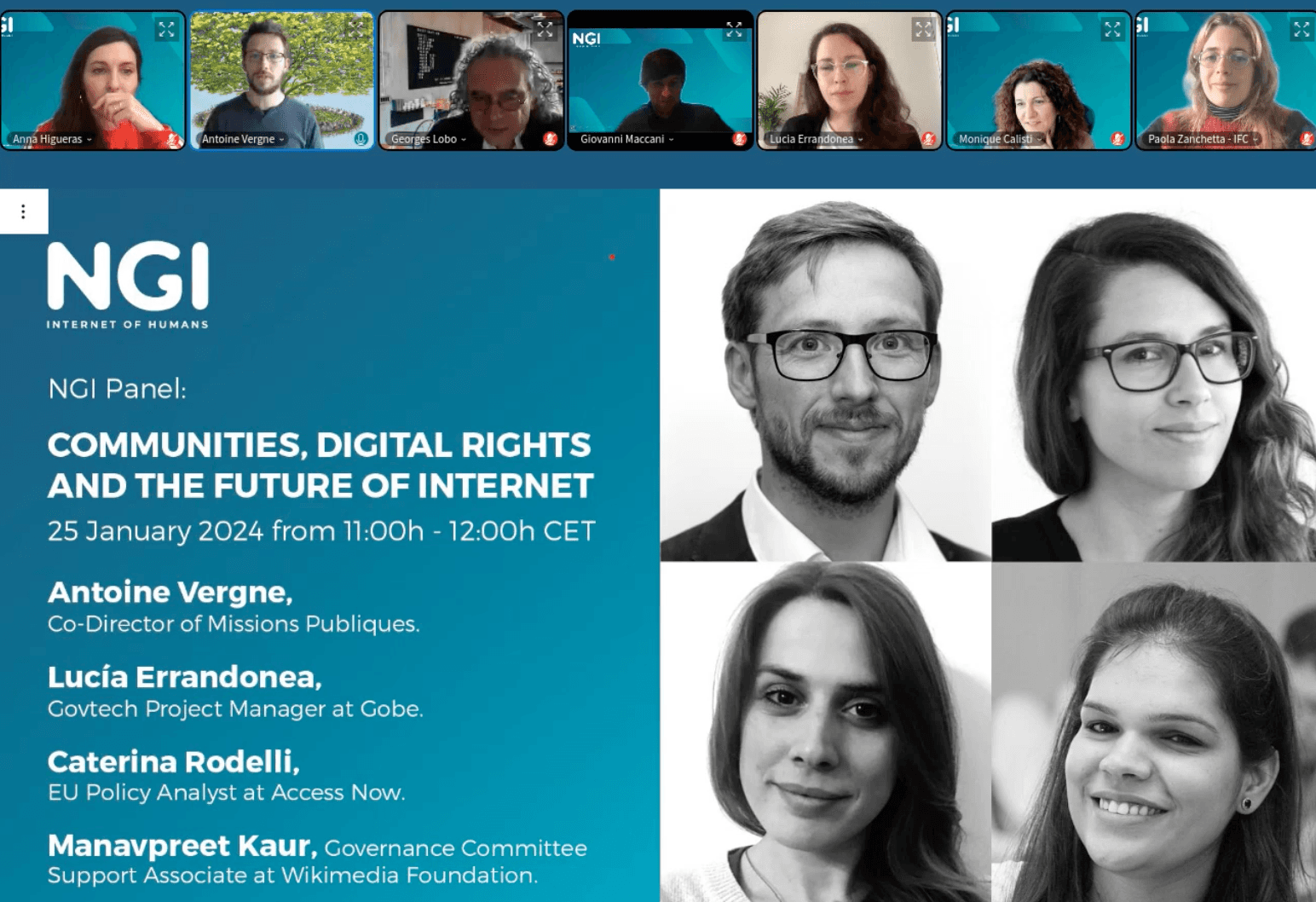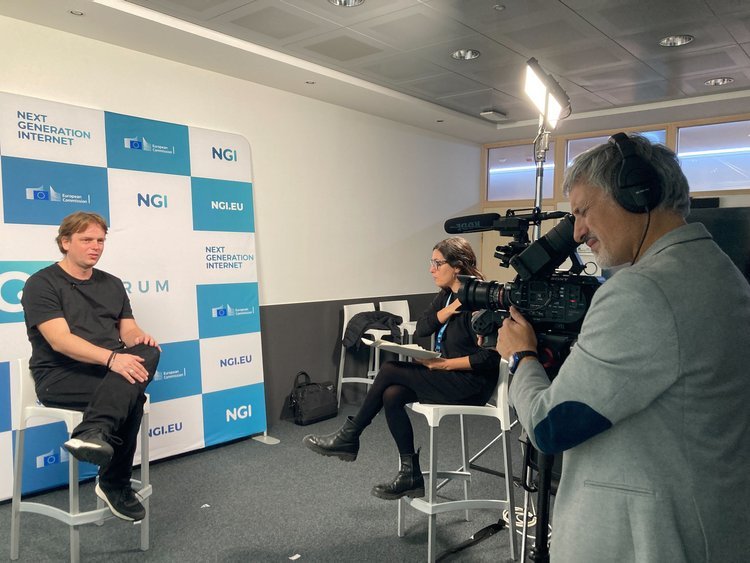Scientific research
Scientific research
The CitieS-Health toolkit: awakening creativity in citizen science
The CitieS-Health toolkit: awakening creativity in citizen science
11 de junio de 2020


By Valeria Righi, senior researcher, and Lucía Errandonea, Project Manager. (Original publication in Spanish)
Are you planning a citizen participation activity and don't know where to start? Would you like to come up with a creative action that deviates from the classic standards of the discipline? The CitieS-Health toolkit is here to help you!
This online guide for designing and developing participatory studies aims to assist anyone interested in experimenting with citizen science to engage communities to address common issues and implement actions that make the world a better place to live.
Do you want to discover what makes this project so special? Keep reading!
Tools, resources, and useful stories
The CitieS-Health toolkit provides examples and resources for designing research studies driven by citizens themselves, identifying common problems, and proactively collecting data with the aim of providing evidence to inform actions that address the issue at hand. The available tools are designed to guide citizen science professionals through all stages of the process, offering ideas on how to engage the public in a meaningful and fun way.
Focused on projects that address people's daily lives
Very often, citizen participation is taken for granted, and not enough effort is made to ensure that citizens participate in a meaningful and enjoyable way in these types of studies. Therefore, the CitieS-Health toolkit focuses on citizen science projects that address issues that directly affect people's daily lives.
Many of the available tools serve to identify what topics are truly concerning citizens, an aspect that serves as the starting point for the citizen science projects we want to promote. Some of the proposed topics are related to air pollution, noise, smells, traffic, lack of green spaces, or health.

An interactive and collaborative experience
The CitieS-Health toolkit allows users to choose the tools that are most relevant to the type of activity they wish to develop and the objectives they aim to achieve. The platform has a section where users can filter the tools according to their interests.
Moreover, it is an open project. Although the initiative was born at the heart of the CitieS-Health project, the toolkit aims to create a shared knowledge space among citizen science professionals from all research fields. In this regard, a section of the website provides anyone working on participatory projects the opportunity to suggest new tools to engage the public in science.
A straightforward path for citizen science professionals
The toolkit is organized around the CitieS-Health participation framework and covers four main phases in the development of citizen science projects: identification, co-design, implementation, and action. For each phase, the framework highlights three expected outcomes that help visualize the path forward. Each of the proposed tools contributes to achieving a specific outcome. Some tools help users identify citizens' concerns, others provide guidance on how to lead discussions with participants regarding aspects related to project governance, and others offer inspiration on how to carry out a data collection campaign.
Finally, a chatbot is also being developed to assist users in navigating the content more easily and intuitively. We will soon be able to provide more details about this new feature.
An online toolkit with a physical version (very fun!)
The CitieS-Health toolkit will also have its physical version: the Citizen Science Play Kit. This small-format card game can be used to learn more about the different tools and tips offered in the toolkit and is designed to be used at workshops, events, and schools to spark curiosity among participants and involve them in designing the overall engagement strategy of a citizen science project. This kit will be presented for the first time at the Mitforschen! The Citizen Science Festival! from October 14 to 15 and will be available for download on the project's website.
By Valeria Righi, senior researcher, and Lucía Errandonea, Project Manager. (Original publication in Spanish)
Are you planning a citizen participation activity and don't know where to start? Would you like to come up with a creative action that deviates from the classic standards of the discipline? The CitieS-Health toolkit is here to help you!
This online guide for designing and developing participatory studies aims to assist anyone interested in experimenting with citizen science to engage communities to address common issues and implement actions that make the world a better place to live.
Do you want to discover what makes this project so special? Keep reading!
Tools, resources, and useful stories
The CitieS-Health toolkit provides examples and resources for designing research studies driven by citizens themselves, identifying common problems, and proactively collecting data with the aim of providing evidence to inform actions that address the issue at hand. The available tools are designed to guide citizen science professionals through all stages of the process, offering ideas on how to engage the public in a meaningful and fun way.
Focused on projects that address people's daily lives
Very often, citizen participation is taken for granted, and not enough effort is made to ensure that citizens participate in a meaningful and enjoyable way in these types of studies. Therefore, the CitieS-Health toolkit focuses on citizen science projects that address issues that directly affect people's daily lives.
Many of the available tools serve to identify what topics are truly concerning citizens, an aspect that serves as the starting point for the citizen science projects we want to promote. Some of the proposed topics are related to air pollution, noise, smells, traffic, lack of green spaces, or health.

An interactive and collaborative experience
The CitieS-Health toolkit allows users to choose the tools that are most relevant to the type of activity they wish to develop and the objectives they aim to achieve. The platform has a section where users can filter the tools according to their interests.
Moreover, it is an open project. Although the initiative was born at the heart of the CitieS-Health project, the toolkit aims to create a shared knowledge space among citizen science professionals from all research fields. In this regard, a section of the website provides anyone working on participatory projects the opportunity to suggest new tools to engage the public in science.
A straightforward path for citizen science professionals
The toolkit is organized around the CitieS-Health participation framework and covers four main phases in the development of citizen science projects: identification, co-design, implementation, and action. For each phase, the framework highlights three expected outcomes that help visualize the path forward. Each of the proposed tools contributes to achieving a specific outcome. Some tools help users identify citizens' concerns, others provide guidance on how to lead discussions with participants regarding aspects related to project governance, and others offer inspiration on how to carry out a data collection campaign.
Finally, a chatbot is also being developed to assist users in navigating the content more easily and intuitively. We will soon be able to provide more details about this new feature.
An online toolkit with a physical version (very fun!)
The CitieS-Health toolkit will also have its physical version: the Citizen Science Play Kit. This small-format card game can be used to learn more about the different tools and tips offered in the toolkit and is designed to be used at workshops, events, and schools to spark curiosity among participants and involve them in designing the overall engagement strategy of a citizen science project. This kit will be presented for the first time at the Mitforschen! The Citizen Science Festival! from October 14 to 15 and will be available for download on the project's website.


